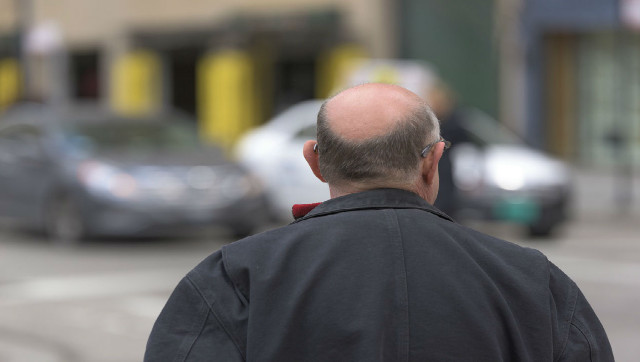COVID-19 emerged just over six months ago and in this short span of time, researchers have found a lot about the disease. So far, it is known that men, the elderly and those with co-morbidities are at a higher risk of severe COVID-19. Now, a group of researchers suggest that men with male pattern baldness (or androgenic alopecia) are more likely to develop severe COVID-19. The link has been proposed on the basis of two different studies on patients in Spain. The researchers are calling this risk factor the ‘Gabrin’s sign’ after Dr Frank Gabrin, the first US physician to die of COVID-19. Dr Gabrin had androgenic alopecia and he was also fighting bilateral testicular cancer. The studies For the first study, 41 COVID-19 patients with bilateral pneumonia were analysed. They were all Caucasian men. Out of them, 71 percent had clinically significant androgenic alopecia (AA) while the rest 29% had some signs of the AA. A total of 39% had severe AA. For the second study, the researchers studied 175 COVID-19 patients. The male to female ratio was 2.3:1. Out of the group, about 79% of the men and 42% of the women had androgenic alopecia. However, most women were in the older age group as compared to men. [caption id=“attachment_8461741” align=“alignnone” width=“640”]  Representational image. Image by Ira Lee Nesbitt from Pixabay[/caption] Androgenic alopecia, androgens and SARS-CoV-2 Androgenic alopecia is the most common cause of hair loss in men. Though it also occurs in women, the pattern of hair loss differs in both genders. As per the US National Library of Medicine, in men, hair loss occurs at the temples and crown and leads to a receding hairline whereas in women, this hair loss is from all over the head and there is no receding of the hairline. Also, the condition may lead to complete baldness in men but not in women. Though the exact cause of the condition is unknown, experts suggest that it occurs due to variations in the androgen receptor gene located on the X chromosome. Androgens are male hormones such as testosterone and dihydrotestosterone. These variations increase the activity of androgen receptors. It has been previously shown that an increase in the expression of the androgen receptor gene leads to higher activity of a protein that activates the spike protein of SARS-CoV-2 virus, which, in turn, helps it bind to the ACE-2 receptors. More things to consider In the first study, the authors mentioned that it was only based on visual diagnosis and no information was available on whether any of the people in the study already had got anti-androgen treatment as it would then change the finding of the study. Regardless, it was suggested that that given the association, anti-androgen therapy may be beneficial for COVID-19 patients. The study also pointed out that hydroxychloroquine (HCQ), the most debated drug for COVID-19, has shown some androgen (specifically, testosterone) reducing action in mice and a combination of HCQ and itraconazole is currently being studied for prostate cancer treatment. Androgens promote the growth of prostate cancer so those with the disease are given hormone therapy to reduce the production or use of androgens in the body. For more information, read our article on Baldness. Health articles in Firstpost are written by myUpchar.com, India’s first and biggest resource for verified medical information. At myUpchar, researchers and journalists work with doctors to bring you information on all things health.
A group of researchers suggest that men with male pattern baldness (or androgenic alopecia) are more likely to develop severe COVID-19.
Advertisement
End of Article


)

)
)
)
)
)
)
)
)



